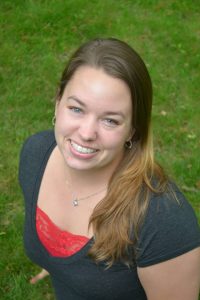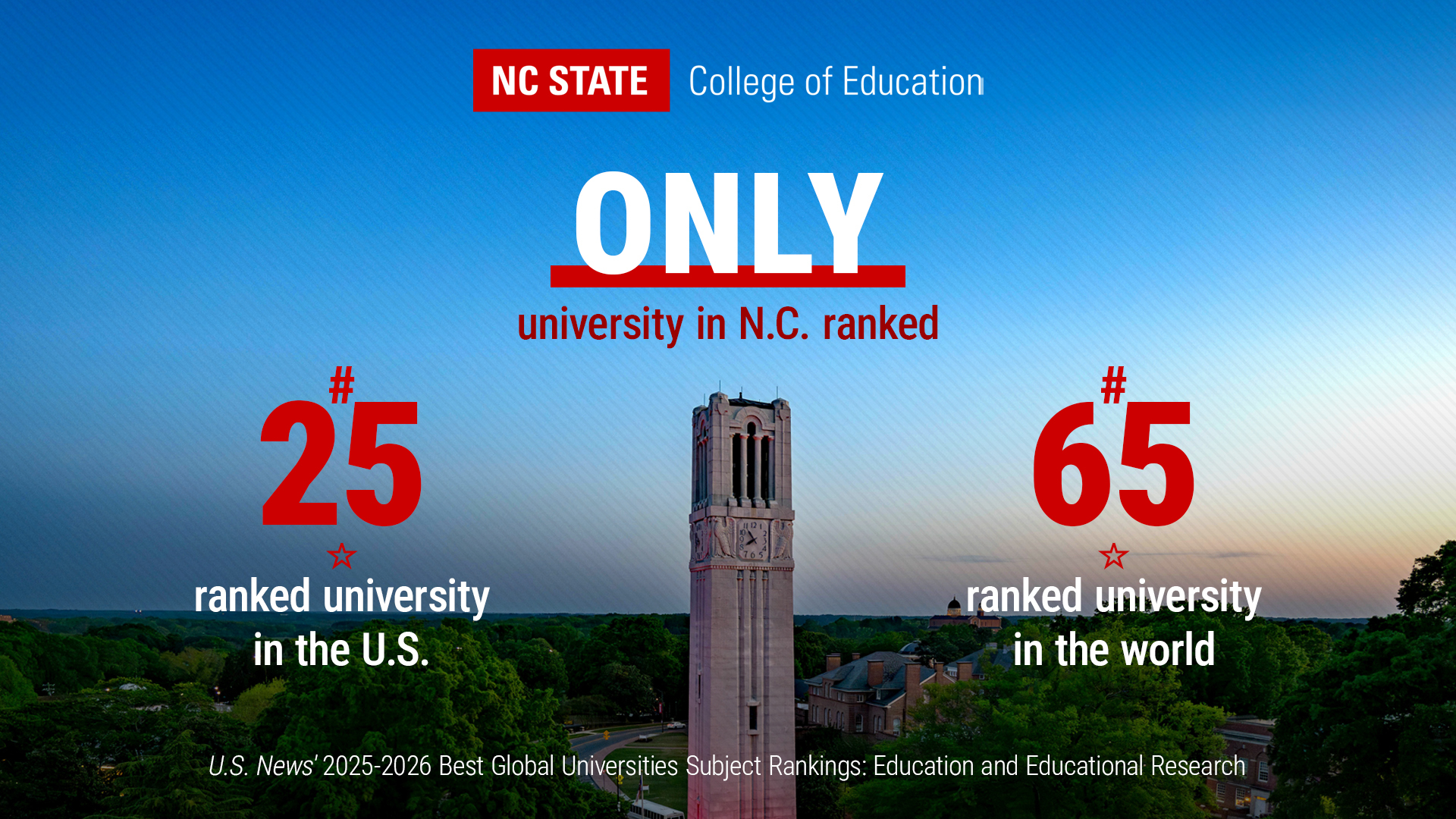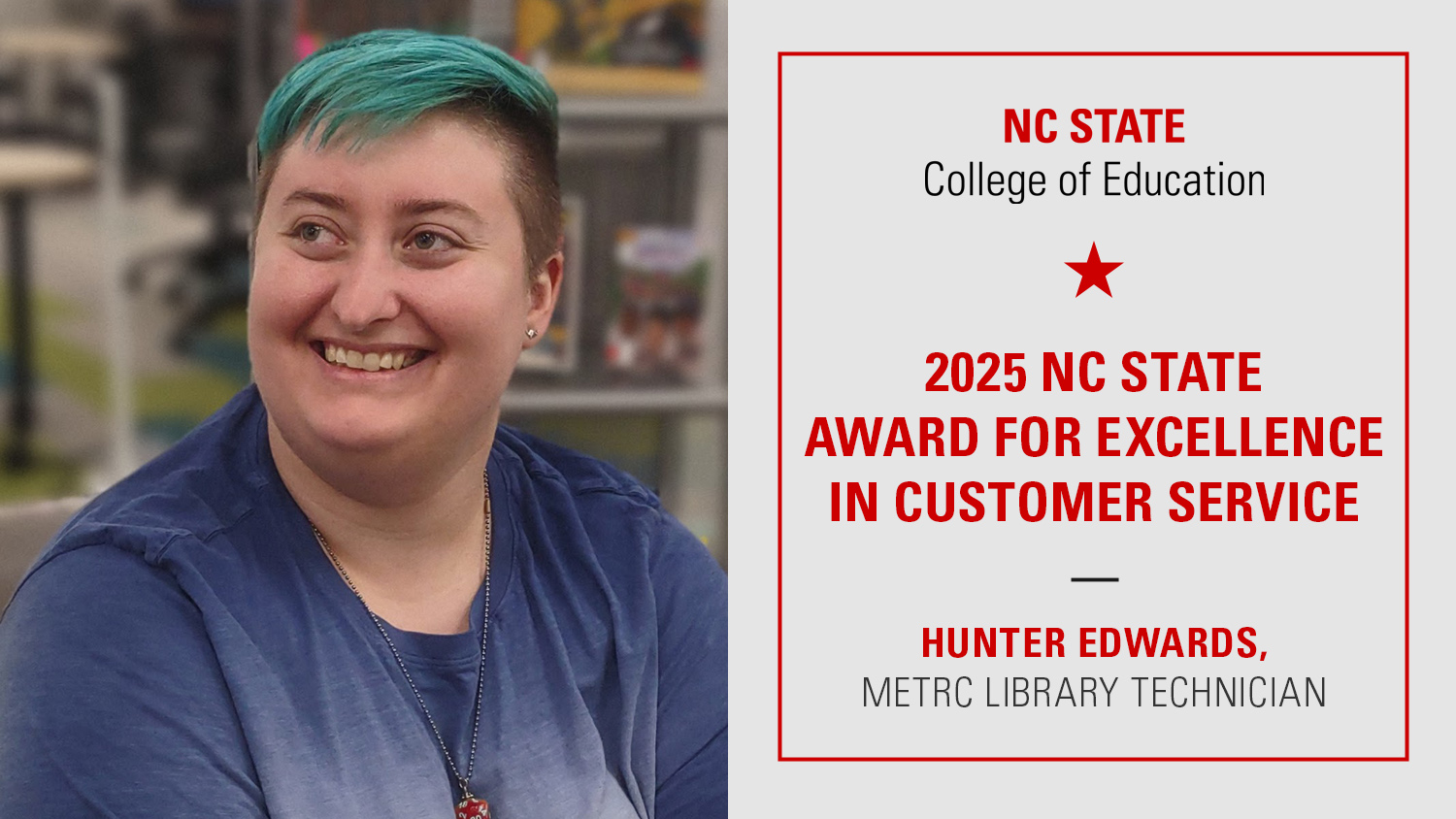Spotlight On National Science Foundation Research Fellow Megan Ennes


Megan Ennes, doctoral student in science education, started her career in marine biology. She has spent the last decade as a marine science educator in aquariums. It was there she discovered her interest in researching informal science educators, and that path led her to NC State.
Ennes recently received an invitation to the prestigious National Science Foundation Graduate Research Fellowships Program (NSF GRFP). Fellows benefit from a three-year annual stipend of $34,000, along with a $12,000 cost of education allowance for tuition and fees, opportunities for international research and professional development, and the freedom to conduct research at any accredited U.S. graduate institution.
We got a chance to talk to Ennes about the journey that led to her receiving the oldest national graduate fellowship of this kind.
Why did you apply for the NSF GRFP? What are you looking forward to the most?
I was encouraged by the STEM Education Department to apply for the NSF GRFP because I satisfied the parameters of the grant qualification. A team headed by Teya Rutherford and Eric Wiebe worked together to help me and three other students in the department develop our proposals. In fact, all four applicants from NC State’s STEM Education Department were acknowledged with an honorable mention.* It says a lot about the quality of our students’ ideas and the faculty’s commitment to mentoring that we all scored so well.
I am grateful for the support that the NSF GRFP will provide so that I may become more involved the research headed by my advisor, Gail Jones. With this funding, I will be able to focus my energies and time on courses and research. I am also very excited about the potential travel opportunities. The NSF GRFP offers opportunities to apply for international research. I would welcome opportunities abroad that matches both mine and my team’s research interests.
*Congratulations to Sarah Kessler, Kathryn Green and Casey Medlock, who were awarded an honorable mention for their applications.
What has been your No. 1 experience in the College of Education science education program thus far?
I have really enjoyed my experiences with original research. This year I helped pilot a national survey of educators in science museums. I helped teammates conduct research on the educational properties of zSpace and concepts related to size and scale. As I don’t have previous research experience, this has been very important to me. Being a member of this team and being included from the very beginning has been wonderful. Having read students’ negative experiences of feeling isolated at other institutions, I was wary, however, my experience has been extremely positive. Our department strives to be inclusive; everyone goes out of their way to offer wonderful opportunities to be involved in the work the faculty members are doing.
How have your experiences been working with the faculty?
My advisor, Gail Jones, has been very supportive of my transition into the doctoral program. She has ensured I have ample opportunities to be involved in her research and outreach. She has challenged me to think critically about my personal and professional goals and how to map out the experiences I would need to get there.
I have also been working with members outside of the College of Education. My collaborative experiences with Department of Forestry and Environmental Resources and the Center for Geospatial Analytics have really opened my eyes to innovative opportunities in the field of education. NC State has so many wonderful opportunities to collaborate across disciplines and I have been fortunate to be able to take advantage of that.
What advice would you give to prospective students considering an advanced degree in science education?
I would encourage prospective students to be confident in themselves and be proactive about getting involved. Make the most of your time in graduate school by seeking out and saying “yes” to new opportunities. Take chances and apply for fellowships. Go to conferences with your advisor. Take advantage of all of the resources your university offers: speakers, workshops and social events. This is a once-in-a-lifetime opportunity and it is up to you to make the most of it.
- Categories:


